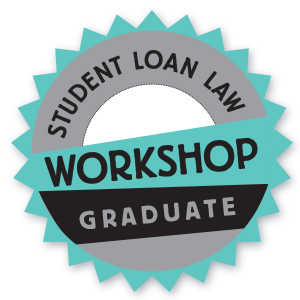In October, the U.S. Department of Education reported that student loan servicer MOHELA overcharged 300,000+ borrowers on monthly student loan payments for Federal Direct Unsubsidized Loans. These discrepancies are reportedly due to issues when borrowers changed from an existing payment plan to the latest income-driven repayment plan, SAVE. Borrowers with miscalculated payment amounts on their Federal Student Loans will be in administrative forbearance until the correct payment is determined. This post discusses the steps to take if you want to tackle the situation yourself.
How do I find out if my student loan payments are wrong?
If you want to handle the situation with your Federal Education Loans on your own, here are the nine steps you can take to verify and address the issue.
- Review Your Loan Documents: Start by carefully reviewing your student loan documents, including the promissory note for your Federal Direct Unsubsidized Loans, loan statements, and any correspondence from your loan servicer. Make sure you understand the terms and conditions of your loan, including the interest rate, loan balance, and repayment plan.
- Double-Check Loan Details: Confirm that the loan balance and interest rate your loan servicer has on record (found on your monthly statement) match the information you have. Any discrepancies in these details could affect your monthly payment amount. If you cannot find the information you need, you can go to the StudentAid.gov site and get documentation there.
- Contact Your Loan Servicer: Your loan servicer is the company responsible for managing your student loan account. You can find their contact information on your loan statements or on their website. Contact them directly to inquire about your payment amount. Be prepared to provide your loan account number and any relevant information about your loan.
- Verify Your Repayment Plan: There are several repayment plans available for both private and federal student education loans. Each has different payment amounts and terms. Ensure you are on the plan that suits your financial situation and goals. You can discuss changing your repayment plan with your loan servicer if necessary.
- Check for Deferment or Forbearance: If you believe you should have a temporary break from making payments due to deferment or forbearance on your Federal Direct Unsubsidized Loan, make sure that this status has been properly applied to your loan. This can reduce or temporarily halt your monthly payments.
- Verify Income-Driven Repayment (IDR) Plan: If you are on an income-driven repayment plan, ensure that your loan servicer has your current income information on file. The monthly payment amount on your Federal Education Loans, under an IDR plan, is based on your income, family size, and state of residence.
- Review Payment History: Check your payment history to make sure you haven’t missed any payments or incurred any late fees. Incorrectly processed payments or penalties can affect your loan balance and future payments.
- Document Everything: Keep detailed records of all communication with your loan servicer, including dates, names of representatives you spoke to, and the content of the conversations. This documentation may be helpful if you need to escalate the issue or file a complaint.
- Seek Assistance: If you’ve gone through the above steps and still believe there is an issue with the payment amount on your Federal Education Loans, consider seeking help from a student loan ombudsman, financial counselor or experienced Student Loan Lawyer. The U.S. Department of Education has a Federal Student Aid Ombudsman Group that can assist with loan-related disputes.
CORRECT STUDENT LOAN PAYMENTS & PROTECT YOUR CREDIT!
Address any discrepancies or concerns with your student loan payments promptly. Sign up for notifications or add alerts to your calendar to ensure you are up-to-date on the status of your student loans and keep track of your financial records. These steps are critical for avoiding potential financial difficulties or damage to your credit.
Student Loan Lawyers - Correct Your Student Loan Payments
The Federal Student Aid site (studentaid.gov) is designed to help borrowers like you make decisions about student loans and payments. Unfortunately, the topic is not as cut and dried as it may seem. Payment plans, forgiveness programs and alternative options that you are unaware of may be available.
When you call your student loan servicer, the employees who answer questions are trained to provide certain answers. Keep in mind that they work for the organization, not you. What is best for them may not work for you.
Trained student loan lawyers know the law and understand the policy. They stay up-to-date on current court rulings and often work as part of a larger network. Most of these attorneys also typically practice in other areas, such as bankruptcy, estate planning, and family law. This means they can help you determine which programs can help you the most and understand how they affect your financial future.
Find a Student Loan Lawyer Near Me
Qualified student loan lawyers typically have the student loan law professional seal on their website. These attorneys have been trained by The Student Loan Lawyer, Joshua Cohen. He has been practicing student loan law exclusively since 2008 and has trained attorneys practicing nationwide. Find a student loan lawyer near you today!

